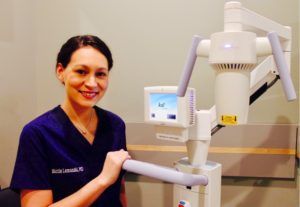November 10th is World Keratoconus Day
The National Keratoconus Foundation has elected that November 10th to be World Keratoconus Day. The designation of this date is to be used as a platform for raising awareness of Keratoconus, a potentially visually devastating corneal disease.
Keratoconus, which affects 1 in 400 individuals, is an eye disease of the cornea, the clear tissue of the front part of the eye. In normal eyes, the dome shaped cornea focuses light into the eye allowing for clear vision. In Keratoconus, the cornea progressively thins and weakens, causing the cornea to bulge forward. This bulge can change the patient’s vision rapidly, especially around early adolescence, and can cause poor visual quality. In the beginning patients with Keratoconus may have few symptoms. As the disease progresses, patients may become very nearsighted (myopic) and have a high degree of astigmatism that is not always correctable by glasses or contact lenses. Continued progression may necessitate a corneal transplant to restore useful vision.
Corneal Crosslinking is the first and only FDA approved treatment to halt the progression of Keratoconus, thereby preventing a corneal transplant. It is the only proven method of halting progression.
Corneal specialist Dr. Nicole Lemanski, who took part in clinical trials for corneal crosslinking, spearheads the Capital Region’s first and only designated Center of Excellence for Keratoconus treatment at Mabel MP Cheng MD & Nicole Lemanski, MD, located at 3140 Troy Schenectady Road, Schenectady, NY. She provides treatment with the Avedro KXL Corneal Crosslinking unit, the FDA’s first and currently only approved device for procedures in the United States.
Dr. Lemanski with the FDA approved Avedro KXL Unit for Corneal Crosslinking and Post-Surgical Ectasia.







